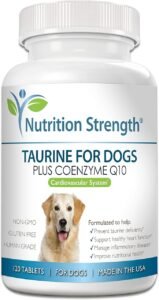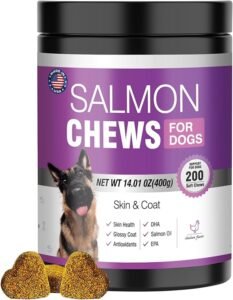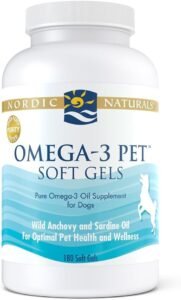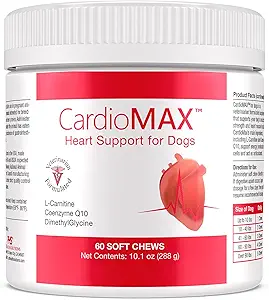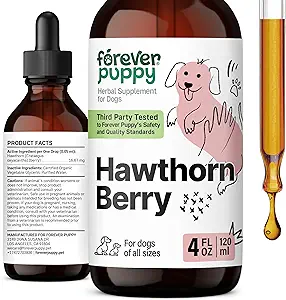Hound Breeds
Treeing Walker Coonhound Puppies for Sale:

Comprehensive Global Information

Treeing Walker Coonhound Puppies for Sale:
treeing walker coonhound puppies, puppies for sale, dog breeds, kennel clubs, global contacts, puppy pricing, inquiry emails
Are you looking for a Treeing Walker Coonhound puppy? This guide provides essential information, including official resources, worldwide office addresses, country-wise contact details, and pricing details.
For more information regarding 4 seasonal cxcercieses of all dog breeds recommended by the doctors and experts,you can visit our youtube channel:
https://www.youtube.com/@Dogsreaders
Official Resources

official resources, reputable breeders, kennel club websites, AKC, UKC
To ensure that you are buying from reputable breeders, here are some official resources and websites that can help:
- American Kennel Club (AKC): https://www.akc.org
- United Kennel Club (UKC): https://www.ukcdogs.com
For country-specific official organizations, please refer to the addresses and contact details below.
Country-Wise Office Addresses

office addresses, kennel clubs, country-wise contacts, global office information
Dealing Desk Contact Information

contact numbers, dealing desk, email support, customer service
Pricing Details (Country-Wise)

puppy prices, cost breakdown, pricing by country
| Country | Price Range (in USD) |
| United States | $500 – $1,500 |
| Canada | $600 – $1,800 |
| United Kingdom | £500 – £1,200 |
| Australia | AUD 800 – AUD 2,000 |
| Germany | €600 – €1,500 |
| India | ₹50,000 – ₹1,20,000 |
(Note: Prices may vary based on breeder reputation, puppy lineage, and health certifications.)
Inquiry Emails Table (Country-Wise)

inquiry emails, breeder contact, puppy inquiries
Hound Breeds
The Hidden Language of Dogs: 15 Behaviors Decoded by Experts
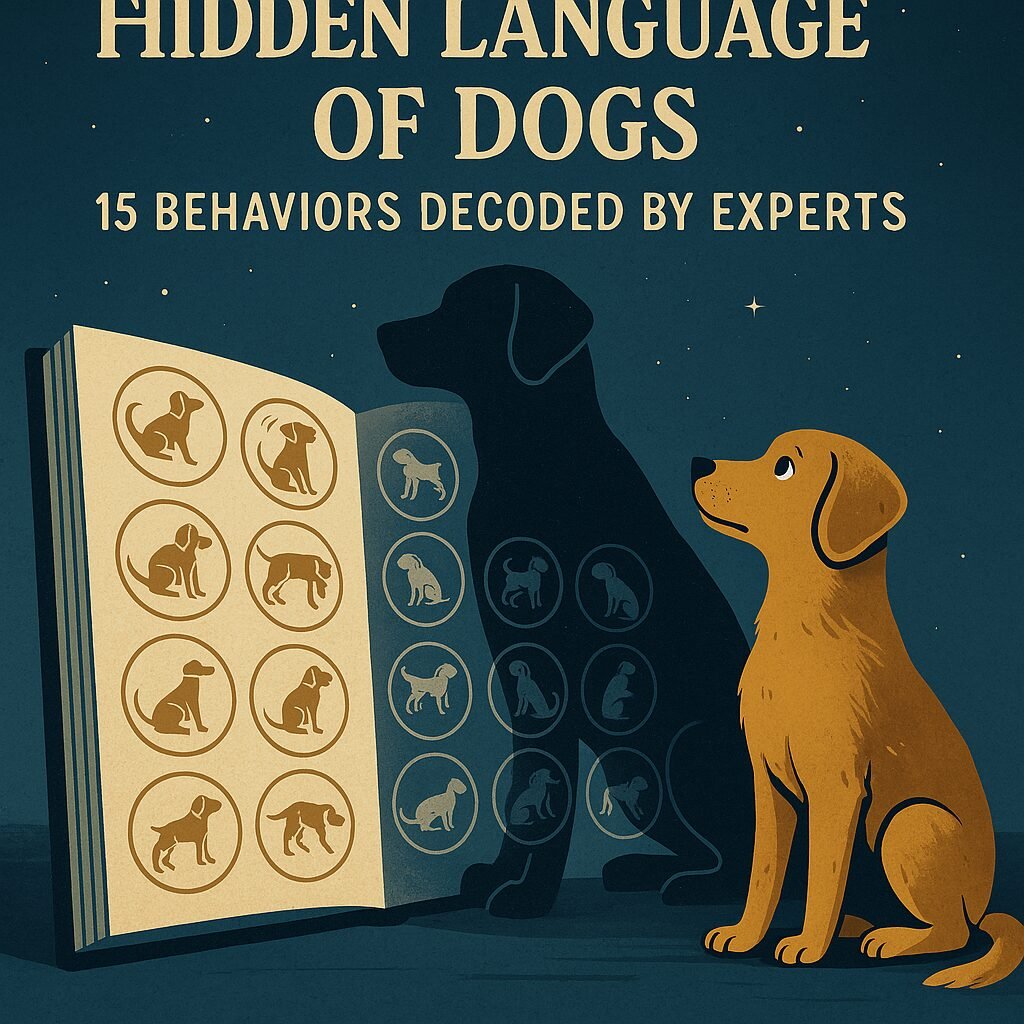
Introduction: What Is Your Dog Really Saying?
The Hidden Language of Dogs: Dogs may not speak our language, but they’ve mastered their own—and it’s more sophisticated than many people realize. Every tail wag, ear twitch, or low growl can mean something very specific. To most dog owners, these signals are puzzling or even misinterpreted. That’s why we teamed up with dog behaviorists and trainers from around the world to decode the 15 most misunderstood behaviors in dogs. Get ready to become fluent in the hidden language of your canine companion.
1. Tail Wagging Isn’t Always Happy
What it means: The position, speed, and direction of a wag matter.
- High and fast wag = excited
- Low and slow wag = cautious or uncertain
- Wagging to the right = positive emotion
- Wagging to the left = negative emotion
2. Head Tilting
What it means: Curiosity, empathy, or trying to hear better. Dogs often tilt their heads when processing complex sounds or trying to focus on human facial expressions.
3. Whale Eye (Showing the Whites of the Eyes)
What it means: Anxiety or feeling cornered. This is a warning sign that your dog is uncomfortable.
4. Excessive Paw Licking
What it means: Boredom, allergies, or anxiety. It can be physical or emotional—look at patterns.
5. Sudden Zoomies (FRAPs)
What it means: A build-up of energy that’s released all at once. Dogs do this when excited, relieved, or overly stimulated.
6. Leaning Against You
What it means: Trust and affection. Some breeds are natural “leaners” (like Great Danes), while others do it when seeking security.
7. Sleeping on Their Back
What it means: Trust, comfort, and feeling safe. This is a submissive pose that leaves vital organs exposed.
8. Yawning Excessively (Outside Sleep Context)
What it means: Stress-relief, especially in new environments. It’s a calming signal used by dogs and observed in pack behavior.
9. Rolling in Smelly Things
What it means: An instinctual behavior to mask their own scent—used in the wild to sneak up on prey or communicate with other dogs.
10. Barking at Nothing
What it means: Dogs have sharper hearing and smell than humans. They could be reacting to distant sounds, unseen visitors, or even feeling territorial energy.
11. Raised Hackles (Goosebumps)
What it means: Not always aggression—could be surprise, arousal, or excitement. Context is crucial here.
12. Carrying Food to Another Room
What it means: Instinctive behavior from wild ancestry—dogs used to take food to a secure, quiet place to eat safely.
13. Constant Shadowing (Following You Everywhere)
What it means: Attachment, affection, or separation anxiety. Breed tendencies (like Velcro dogs—Labrador, Vizsla) matter here.
14. One Paw Lifted While Standing
What it means: Alert but not aggressive. The dog is focused—possibly hunting or trying to understand the next move.
15. Sniffing Everything Obsessively
What it means: Dogs process the world through scent. Sniffing is a mental workout and also a way to map territory, track others, or find mates.
How to Use This Knowledge to Improve Your Relationship
Understanding your dog’s hidden signals gives you a massive advantage:
- 🐾 Respond to anxiety before it escalates
- 🐾 Provide better stimulation and emotional care
- 🐾 Create deeper trust and bonding moments
Dogs communicate all the time—you just need to learn the language.
FAQs
Q1: Why does my dog bark at random things in the night?
A: Dogs hear ultrasonic sounds, distant footsteps, and other stimuli we can’t. It’s often protective instinct.
Q2: How can I tell the difference between play growling and aggressive growling?
A: Play growling is usually paired with loose body language and tail wagging. Aggressive growling is stiff and intense.
Q3: Should I stop my dog from doing zoomies indoors?
A: No, unless it’s dangerous. It’s healthy and natural. Try redirecting it to an open space.
Q4: What does it mean when my dog sighs after lying down?
A: That’s often contentment. Dogs sigh when they feel safe and relaxed.
Q5: Why does my senior dog follow me more than before?
A: Aging dogs may rely more on human companions due to declining senses. It’s also a sign of trust.
Final Thoughts: Dogs Speak, Are You Listening?
Your dog is telling you everything—from how they feel to what they need. You just have to learn their unique voice. DogsReader is committed to helping dog lovers like you become fluent in the behaviors that build lifelong trust and companionship.
Stay connected, stay informed—and don’t forget to share this article with fellow dog lovers!
Hound Breeds
The Rise of Unique Dog Names: Trends and Inspirations

Latest Naming Trends
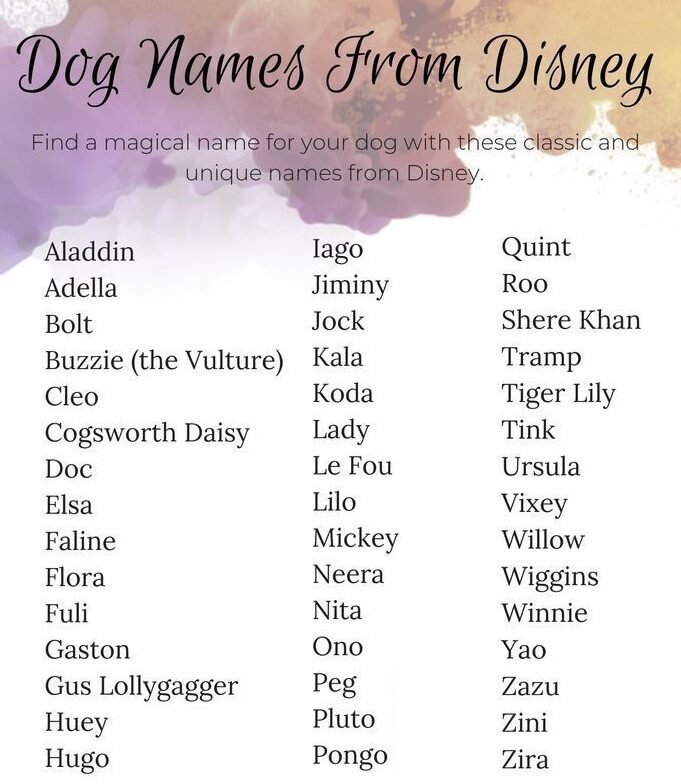
The Rise of Unique Dog Names: Choosing a name for your dog is an exciting yet significant task. Over the years, the trend of naming dogs has shifted dramatically from traditional names like Max and Bella to more unique and personalized names. This change reflects cultural influences, pop culture, and the increasing humanization of pets. In this article, we explore the reasons behind the rise of unique dog names, the latest naming trends, and where dog owners find their inspiration.
For more information regarding 4 seasonal cxcercieses of all dog breeds recommended by the doctors and experts,you can visit our youtube channel:
Why Are Unique Dog Names on the Rise?

There are several factors contributing to the increasing popularity of unique dog names:
- Personalization & Identity –
- More dog owners now see their pets as family members, prompting them to choose names that reflect their pet’s personality, characteristics, or even their own interests.
- Pop Culture Influence –
- Many dog names are inspired by movies, TV shows, celebrities, and even fictional characters. For instance, names like “Loki” (Marvel), “Grogu” (Star Wars), and “Wednesday” (Netflix’s Wednesday series) have become trendy.
- Social Media Trends –
- With the rise of pet influencers, unique names help dogs stand out in an ever-growing digital space. Instagram-famous pets often have quirky and unforgettable names.
- Cultural and Global Inspiration –
- Many pet owners are now looking beyond their local language and culture for names. Names inspired by mythology, foreign words, or even historical figures have gained popularity.
Current Trends in Dog Naming

Human Names for Dogs
More owners are choosing names that were traditionally reserved for people:
-
Oliver
-
Sophia
-
Henry
-
Amelia
Food-Inspired Dog Names

Names inspired by favorite foods and drinks have gained popularity:
-
Mochi
-
Biscuit
-
Latte
-
Sushi
Nature-Inspired Names

Many dog owners are turning to nature for inspiration:
-
Aspen
-
River
-
Storm
-
Willow
Mythological and Fantasy Names
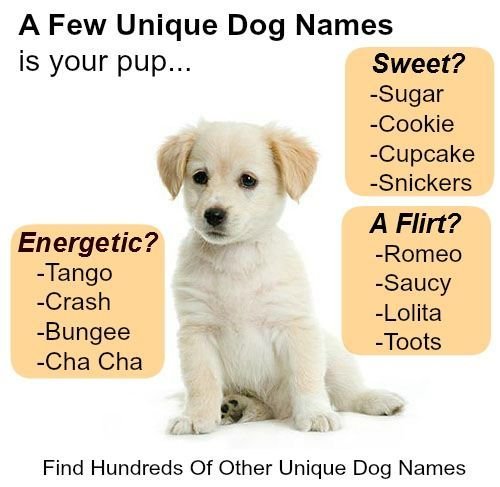
Dog names inspired by mythology and fantasy worlds continue to be a trend:
-
Apollo
-
Athena
-
Thor
-
Zelda
Unique Word-Based Names

Some pet owners are thinking completely outside the box with word-based names:
-
Echo
-
Pixel
-
Nimbus
-
Jinx
Finding the Perfect Name for Your Dog

If you’re looking for a unique name for your dog, here are some sources of inspiration:
- Your Dog’s Personality & Appearance –
- Observe their quirks and coat color. A playful dog might suit “Zippy,” while a calm dog might be called “Zen.”
- Hobbies & Interests –
- If you love music, you might name your dog “Jagger” or “Melody.”
- Foreign Languages –
- Consider words from different languages. “Luna” (Spanish for Moon) and “Kuma” (Japanese for Bear) are popular choices.
- Books, Movies & TV Shows –
- If you love Harry Potter, names like “Dobby” or “Hedwig” could be fun choices.
- Historical & Legendary Figures –
- Naming a dog “Napoleon” or “Cleopatra” adds a regal touch.
Closing Statement
The trend of unique dog names is here to stay, reflecting the deep bond between humans and their furry companions. Whether inspired by pop culture, nature, or mythology, dog owners are getting more creative than ever when naming their pets. Choosing a unique name not only adds personality to your dog’s identity but also strengthens the special connection you share.
📢 What’s your dog’s name? Share it with us on DogsReader’s Facebook and Instagram pages! Connect with us at www.dogsreader.com.
The Rise of Unique Dog Names: Trends and Inspirations – FAQs
Choosing a name for your dog is more than just a fun tradition—it reflects personality, pop culture, and even societal trends. Gone are the days of simple names like Spot or Rover; today’s pet parents are opting for creative, unique, and meaningful monikers. Below, we answer all your burning questions about the latest trends in dog naming!
1. Why Are Unique Dog Names Becoming More Popular?
- Humanization of Pets: Dogs are increasingly seen as family members, leading to more personalized names.
- Social Media Influence: Viral pet accounts inspire creative names (e.g., Tuna the Chiweenie, Noodle the Pug).
- Pop Culture Trends: Movies, TV shows, and celebrities inspire names (e.g., Khaleesi, Grogu, Loki).
- Avoiding Overused Names: Pet owners want names that stand out at the dog park.
2. What Are the Most Popular Trends in Dog Naming Right Now?
A. Food & Drink-Inspired Names
- Sweet Treats: Mochi, Biscuit, Peanut, Waffles
- Beverages: Chai, Latte, Espresso, Whiskey
- Exotic Flavors: Saffron, Wasabi, Matcha
B. Human Names (But with a Twist)
- Classic with a Twist: Barktholomew, Sir Waggington, Droolius Caesar
- Old-School Revival: Walter, Agnes, Eugene
- Celebrity & Fictional Names: Beyoncé, Thor, Wednesday
C. Nature & Mythological Names
- Celestial: Nova, Comet, Luna
- Mythology: Athena, Zeus, Freya
- Botanical: Willow, Basil, Juniper
D. Quirky & Unexpected Names
- Wordplay: Bark Twain, Chewbacca, Mary Puppins
- Random Objects: Socks, Toaster, Waffle
- Nonsense Names: Ziggy, Boop, Noodle
3. How Do I Choose the Perfect Unique Name for My Dog?
- Consider Personality: Is your dog goofy (Waffles), regal (Duchess), or adventurous (Indiana Bones)?
- Test It Out: Say it aloud—does it roll off the tongue? Avoid names that sound like commands ( Kit vs. Sit).
- Think Long-Term: Will it still suit them as they age?
- Check Popularity: Some “unique” names (Luna, Bella) are now very common.
4. What Are Some Unusual But Cool Dog Names?
| Category | Examples |
|---|---|
| Literary | Atticus, Gatsby, Hermione |
| Sci-Fi/Fantasy | Ripley, Gandalf, Leia |
| Historical | Cleopatra, Tesla, Napoleon |
| Music-Inspired | Jagger, Bowie, Hendrix |
| Travel-Themed | Sahara, Rio, Aspen |
5. Are There Any Naming Trends to Avoid?
- Overly Complicated Names: Sir Fluffington the Third might be cute, but will you yell that at the dog park?
- Trendy but Temporary Names: Fidget Spinner was fun in 2017, but will it age well?
- Offensive or Confusing Names: Avoid names that could be awkward in public (Karen, Hitler).
6. Do Certain Breeds Tend to Have Specific Name Trends?
- Small Dogs (Chihuahuas, Yorkies): Taco, Gizmo, Pixie
- Large Breeds (Great Danes, Mastiffs): Titan, Hulk, Xena
- Working Dogs (Border Collies, Shepherds): Ranger, Scout, Nova
- Luxury Breeds (Poodles, Pomeranians): Coco, Chanel, Bentley
7. How Do Pop Culture and Social Media Influence Dog Names?
- TV & Movies: Arya (Game of Thrones), Eleven (Stranger Things), Grogu (The Mandalorian)
- Viral Pets: Doug the Pug, Marnie the Dog
- Memes & Internet Culture: Doggo, Cheems, Smol
8. Can a Dog’s Name Affect Its Behavior?
- Shorter Names (1-2 syllables) like Max, Zoe are easier for dogs to recognize.
- Names with hard consonants (K, D, T) (Rex, Koda) may grab attention better.
- Avoid Negative Connotations: Studies suggest names like Killer might influence perceptions (even if the dog is sweet).
9. What Are Some Unique Gender-Neutral Dog Names?
- Riley, Scout, Pepper, Sunny, Echo, River, Ziggy
10. Where Can I Find More Inspiration for Unique Dog Names?
- Baby Name Websites ( Nameberry, Behind the Name)
- Mythology & History Books
- Nature (Plants, Constellations, Weather Phenomena)
- Foreign Languages ( Kuma = “bear” in Japanese)
Hound Breeds
Congestive Heart Failure in Dogs: Breeds, Causes, and Global Situations

Understanding (CHF)

Congestive heart failure in dogs: (CHF) is a serious and increasingly prevalent condition in dogs, affecting their quality of life and longevity. Recent research has shed light on the breeds most susceptible to CHF, the underlying causes, and the environmental factors contributing to its prevalence in certain countries. This article delves into the latest findings, exploring why some breeds are more prone to CHF, the role of genetics and environment, and the regions most affected by this debilitating condition.
For more information regarding 4 seasonal cxcercieses of all dog breeds recommended by the doctors and experts,you can visit our youtube channel:
What is Congestive Heart Failure in Dogs?

Congestive heart failure occurs when the heart is unable to pump blood effectively, leading to fluid buildup in the lungs, abdomen, or other tissues. This condition is often a result of underlying heart diseases such as dilated cardiomyopathy (DCM), mitral valve disease (MVD), or congenital heart defects. Symptoms include coughing, difficulty breathing, fatigue, and fluid retention.
Signs of Congestive Heart Failure in Dogs
Congestive heart failure (CHF) in dogs occurs when the heart cannot pump blood effectively, leading to fluid buildup in the lungs, abdomen, or other tissues. Recognizing the signs early is crucial for timely intervention and management. Below are the common signs of congestive heart failure in dogs, categorized by the affected area:
1. Respiratory Signs (Fluid in the Lungs)

- Coughing: Especially at night or after exercise.
- Difficulty Breathing: Rapid, shallow, or labored breathing.
- Wheezing or Gasping: Due to fluid accumulation in the lungs.
- Exercise Intolerance: Reluctance to play or walk.
2. Circulatory Signs (Poor Blood Flow)

- Lethargy: Reduced energy and reluctance to move.
- Weakness: Difficulty standing or walking.
- Fainting or Collapse: Due to insufficient blood flow to the brain.
- Cold Extremities: Paws and ears may feel cold.
3. Fluid Retention Signs (Edema)

- Swollen Abdomen: Fluid buildup in the abdomen (ascites).
- Swollen Limbs: Fluid retention in the legs (peripheral edema).
- Weight Gain: Despite a loss of appetite.
4. Behavioral Signs

- Restlessness: Especially at night.
- Anxiety or Panting: Due to discomfort or difficulty breathing.
- Loss of Appetite: Reduced interest in food.
5. Advanced Signs (End-Stage CHF)

- Blue or Pale Gums: Indicates poor oxygenation.
- Severe Breathing Difficulties: Gasping or open-mouth breathing.
- Extreme Weakness: Inability to stand or walk.
- Sudden Collapse or Death: In severe cases.
When to See a Veterinarian

If your dog shows any of the above signs, especially coughing, difficulty breathing, or fainting, seek veterinary care immediately. Early diagnosis and treatment can significantly improve your dog’s quality of life and survival time.
Breeds Most Prone to CHF and Why

Certain dog breeds are genetically predisposed to CHF due to their anatomy, size, or hereditary factors. According to the latest research:
- Small Breeds:
- Cavalier King Charles Spaniels:
- This breed is highly susceptible to mitral valve disease (MVD), a leading cause of CHF. Studies show that nearly 50% of Cavaliers develop MVD by age 5, and almost all are affected by age 10.
- Dachshunds and Chihuahuas:
- These breeds are prone to congenital heart defects and age-related valve degeneration.
- Large Breeds:
- Doberman Pinschers:
- Dobermans are at high risk for dilated cardiomyopathy (DCM), a condition where the heart muscle weakens and enlarges, leading to CHF. Research indicates that up to 58% of Dobermans may develop DCM.
- Great Danes and Boxers:
- These breeds are also prone to DCM and arrhythmias, which can progress to CHF.
- Brachycephalic Breeds:
- Bulldogs and Pugs:
- Their unique skull structure can lead to respiratory and cardiovascular stress, increasing the risk of CHF.
Why These Breeds?

Genetic mutations, selective breeding for specific traits, and breed-specific anatomy play significant roles. For example, the genetic mutation responsible for MVD in Cavaliers has been identified, highlighting the importance of responsible breeding practices.
Most Common Countries Facing CHF in Dogs

The prevalence of CHF in dogs varies by region, influenced by environmental factors, breeding practices, and access to veterinary care.
- United States:
- CHF is widespread due to the popularity of predisposed breeds like Cavaliers and Dobermans. Environmental factors such as obesity, sedentary lifestyles, and poor diets exacerbate the condition.
- United Kingdom:
- The UK has a high incidence of CHF, particularly in Cavalier King Charles Spaniels. The breed’s popularity and genetic predisposition contribute to this trend.
- Australia:
- Similar to the US and UK, Australia faces a high prevalence of CHF in predisposed breeds. The country’s warm climate may also stress dogs with existing heart conditions.
- Developing Countries:
- In regions with limited access to veterinary care, CHF often goes undiagnosed or untreated. Poor nutrition and exposure to infectious diseases like heartworm further increase the risk.
- Environmental Factors:
- Obesity: Overweight dogs are at higher risk of CHF due to increased strain on the heart.
- Pollution: Air pollution and secondhand smoke can exacerbate respiratory and cardiovascular issues.
- Climate: Extreme temperatures, especially heat, can stress the cardiovascular system.
AGE OF ONSET

CHF typically affects middle-aged to older dogs, with most cases diagnosed between the ages of 5 and 12. However, certain breeds, like Cavaliers and Dobermans, may develop CHF earlier due to genetic predispositions.
Prevention and Management of CHF

- Regular Veterinary Checkups:
- Early detection of heart conditions can slow the progression of CHF.
- Balanced Diet:
- A heart-healthy diet low in sodium can reduce the risk of CHF.
- Exercise:
- Moderate exercise helps maintain cardiovascular health but should be tailored to the dog’s condition.
- Medications:
- Drugs like ACE inhibitors, diuretics, and pimobendan can manage symptoms and improve quality of life.
Specific Dog Breeds Prone to Congestive Heart Failure (CHF), along with the most expensive supplements

(CHF) Supplements Click Any Picture In the Table To Buy From Amazon

| Breed | Common Heart Condition | Most Expensive Supplements | Why Recommended | |
|---|---|---|---|---|
| Cavalier King Charles Spaniel | Mitral Valve Disease (MVD) | Omega-3 Fatty Acids (EPA/DHA),
|
Reduces inflammation, supports heart muscle function, and improves energy production in heart cells. | |
| Doberman Pinscher | Dilated Cardiomyopathy (DCM) | L-Carnitine, Taurine,
|
Helps improve heart muscle contraction, prevents taurine deficiency, and supports overall heart health. | |
| Great Dane | Dilated Cardiomyopathy (DCM) | Taurine, L Carnitine,
|
Supports heart muscle function and reduces oxidative stress. | |
| Boxer | Arrhythmogenic Right Ventricular Cardiomyopathy (ARVC) | Coenzyme Q10 (CoQ10),
|
Stabilizes heart rhythm, reduces inflammation, and supports energy production in heart cells. | |
| Bulldog | Congenital Heart Defects | Omega-3 Fatty Acids,
|
Reduces oxidative stress and supports cardiovascular health. | |
| Dachshund | Mitral Valve Disease (MVD) | Coenzyme Q10 (CoQ10),
|
Improves heart function and reduces fluid retention. | |
| Chihuahua | Congenital Heart Defects | Taurine,
|
Prevents taurine deficiency and supports overall heart health. |
Key Notes on Supplements:

- Omega-3 Fatty Acids (EPA/DHA):
- Derived from fish oil, these reduce inflammation and support heart health. High-quality, pharmaceutical-grade fish oil is the most expensive.
- Coenzyme Q10 (CoQ10):
- A powerful antioxidant that improves energy production in heart cells. The ubiquinol form (active form of CoQ10) is more expensive but more effective.
- Taurine:
- An amino acid essential for heart function. Taurine deficiency is linked to DCM in some breeds.
- L-Carnitine:
- Helps transport fatty acids into heart cells for energy production. Often used in Dobermans with DCM.
- Hawthorn Extract:
- A herbal supplement that supports heart function and improves circulation.
Why Are These Supplements Expensive?

- High-Quality Ingredients: Pharmaceutical-grade supplements are purified and free from contaminants.
- Bioavailability: More expensive supplements are formulated for better absorption and effectiveness.
- Research-Backed Formulations: Premium brands invest in clinical studies to prove efficacy.
Prevention Tips:

- Regular Vet Checkups:
- Early detection of heart conditions is critical.
- Balanced Diet:
- Feed high-quality, heart-healthy dog food.
- Exercise:
- Moderate, breed-appropriate exercise to maintain cardiovascular health.
- Avoid Obesity:
- Overweight dogs are at higher risk of CHF.
By investing in these supplements and preventive measures, pet owners can help their beloved dogs live longer, healthier lives despite their breed-specific predispositions to heart disease.
References: American Kennel Club (AKC), Journal of Veterinary Cardiology, and clinical studies on canine heart health.
Closing Statement

Congestive heart failure in dogs is a complex condition influenced by genetics, breed-specific traits, and environmental factors. While certain breeds are more susceptible, responsible breeding, early detection, and proper care can mitigate the risks. As research continues to uncover the genetic and environmental underpinnings of CHF, pet owners and veterinarians must work together to ensure the health and well-being of our canine companions.
By understanding the causes and taking proactive measures, we can help dogs live longer, healthier lives—even in the face of this challenging condition.
-

 SMALL DOG BREEDS4 months ago
SMALL DOG BREEDS4 months agoMerle Chihuahua: A Comprehensive Guide
-

 SMALL DOG BREEDS4 months ago
SMALL DOG BREEDS4 months agoMaltese: A Beloved Companion
-

 Large Breeds4 months ago
Large Breeds4 months agoSamoyeds Hypoallergenic: Closer Look at the Breed
-

 SMALL DOG BREEDS4 months ago
SMALL DOG BREEDS4 months agoMerle Pomeranian: A Adorable Companion
-

 Large Breeds4 months ago
Large Breeds4 months agoStandard Poodle Weight: Country Wise
-

 SMALL DOG BREEDS4 months ago
SMALL DOG BREEDS4 months agoYorkshire Terrier: a Big Personality
-

 MEDIUM BREEDS4 months ago
MEDIUM BREEDS4 months agoAmerican Water Spaniel Colors Chocolate In Crcols:
-

 Terrier Breeds3 months ago
Terrier Breeds3 months agoDog Breeds: by Country & Category





